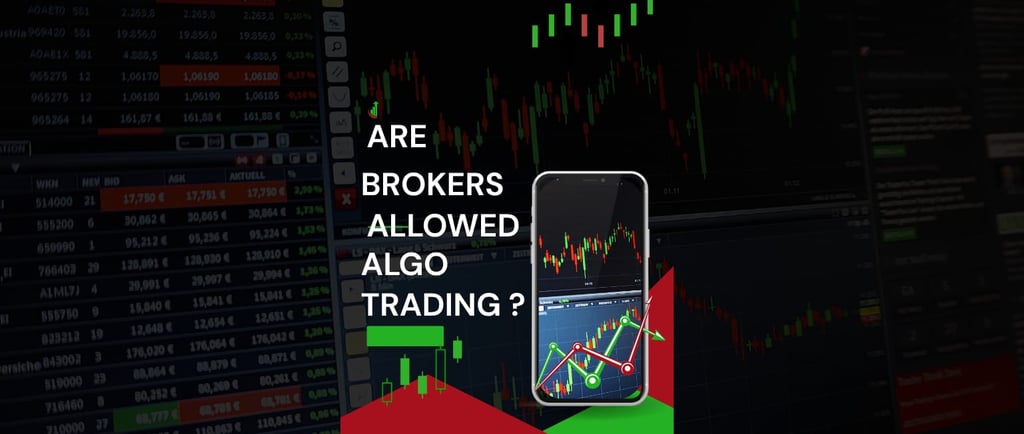Master Class on Business and Financial analysis
Algorithmic Trading – Any order that is generated using automated execution logic shall be known as algorithmic
📈 Algorithmic Trading: SEBI’s New Framework for Safer Retail Participation By CA Rohit Tendulkar – dhandasikho.online
BLOGINVEST
CA Rohit Tendulkar
7/29/20252 min read


Algorithmic Trading – Any order that is generated using automated execution logic shall be known as algorithmic trading.
Algo usage for trading is prevalent in both among institutional traders and retail players. Algo trading involves executing trades using pre-programed instructions or strategies based on variables like price movements and volumes, enabling automated buying or selling of securities. There has been an increasing demand for algo trading by retail investors. In order to facilitate safer participation of retail investors in algo trading, with Stock Brokers (hereinafter referred to as “Brokers”) and Stock Exchanges (hereinafter referred to as “Exchanges”) playing the required roles in risk management, SEBI has decided to review and refine the existing regulatory framework to ensure proper checks and balances, to safeguard investor interest as well as integrity of the market. Thus, SEBI has issued Circular SEBI/HO/MIRSD/MIRSD-PoD/P/CIR/2025/0000013 dated February 4, 2025.
As per Circular No: 21/2025 dated 25 April 2025 issued by National Stock Exchange of India Limited, Exchange provides a trading front-end “NEET” for trading. However, if the Broker wants to customise the trading front-end software according to his requirements, NSE offers a facility to its Brokers by which Brokers can use their own trading front-end software in order to trade on the NSE trading system. This software may be developed either by in-house teams/non-empanelled vendors or procured through Exchange Empaneled Vendors. A Broker may also opt to avail the services provided by Application Service Providers (ASPs) empanelled with the exchange. This facility is referred to as “Non-NEAT Frontend” (NNF ) facility. And is available to all Brokers of the Exchange.
For the purpose of this scheme, Non-Neat Frontend (NNF) shall mean and include use of software, which has been developed and maintained by a member / application service provider / vendor duly empanelled with the Exchange. 'Software‟ shall mean electronic systems or applications used by stock brokers / trading members for connecting to the stock exchanges and for the purposes of trading and real-time risk management, including software used for Compute to Computer Link (CTCL), Internet Based Trading (IBT), Direct Market Access (DMA), Securities Trading using Wireless Technology (STWT), Smart Order Routing (SOR), Algorithmic Trading (AT) etc.
Brokers will now be able to offer direct API (Application Programming Interface) to their retail clients. But registrations by the brokers with the exchange have been mandated, thus the application and registration of algo strategy will be done through a broker while an algo ID will be given by the exchange. Further, it will be the brokers responsibility to ensure that only eligible clients are using API or the facility.
Brokers will have to disclose the Permanent Account Number (PAN) and unique client code of such clients who are Retail traders using their own algos, the Permanent Account Number (PAN) and unique client code of such clients. The brokers will be responsible for all orders sent to the exchange through their terminals, and the algo provider will act as their agent.
The author CA Rohit Tendulkar can be reached at https://dhandasikho.online
Invest
Learn to trade and invest in the market.
Trade
Market
info@dhandasikho.online
+919309542795
Mumbai gossips © 2025-26. All rights reserved.
